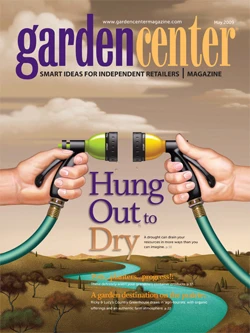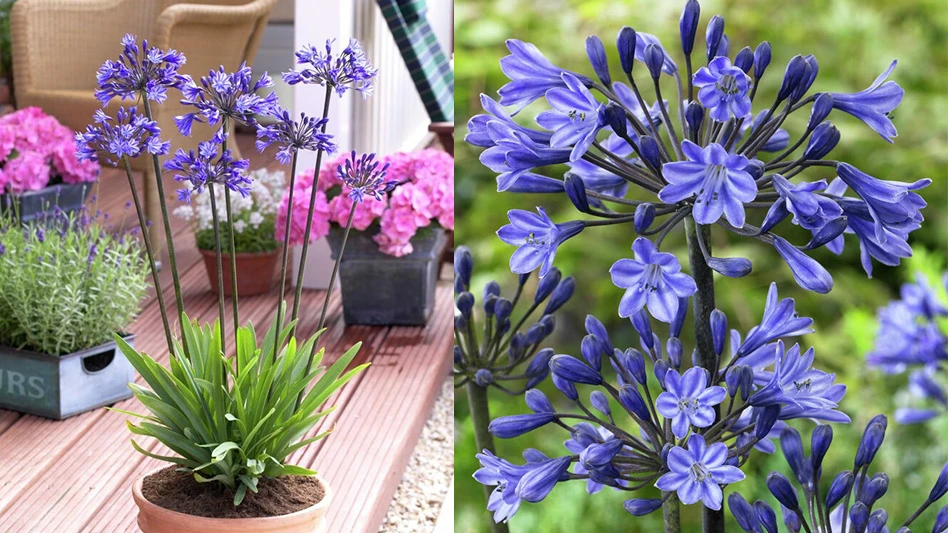| If we care enough to provide natural gardening products to our customers, it makes sense that we would want to make our everyday practices in the garden center more natural and conservation-minded as well. Here are examples of greener procedures we can adopt. They can save energy, or reduce waste—and set a good example for our staff and our customers. They often save us money and, ultimately, allow us to help save our earth. |
 |
Reduce waste, minimize toxins
Everybody knows that garbage is a problem. That is one reason why reducing, reusing and recycling are the foundations of a green system. Reducing the sheer amount of stuff we buy, and the number of products in non-recyclable packaging, reduces garbage. It also lessens the harm to the earth caused by the extraction of materials used to produce the stuff that we buy, while decreasing the amount of pollution from the fossil fuels used to transport the goods. Reusing a material or product as often as possible, and ultimately recycling whenever possible, completes the system. A popular, very entertaining 20-minute video that really illustrates this whole issue is available at TheStoryofStuff.com.
Here is a list of ideas to implement in your store, some of which we practice at the Natural Gardener. Not all suggestions are feasible in every location. It is better to implement one or two significant steps, rather than none.
- Recycle glass, paper, tin, aluminum, cardboard and more.
- Make recycling bins available, visible, and convenient for customers.
- Use rags or shop towels instead of paper towels.
- Purchase recycled, non-chlorine-bleached paper towels and toilet paper.
- Purchase other products made from recycled materials whenever possible.
- Purchase locally-grown plants and locally-produced products.
- Purchase the highest-quality products that last the longest.
- Repair, rather than replace.
- Use compact fluorescent lighting.
- Turn discarded office paper into scratch paper pads before recycling.
- Install a rainwater harvesting system.
- Use drip irrigation.
- Use elbow grease rather than gas-powered machinery. For example, sweep rather than blow.
- Use alternate fuel vehicles, such as propane or biofuels.
- Repair water leaks.
- Implement a composting system whereby all discarded plants, soil, landscape trimmings and even paper towels can be turned into a soil amendment for the landscape.
- Implement permaculture principles in designing buildings, landscape and community. (Check out http://en.wikipedia.org/wiki/Permaculture)
- Make energy-efficient improvements in buildings: insulate; caulk; reduce heating and air conditioning use; replace old appliances with Energy Star products. (Check out http://www.energystar.gov.)
- Turn computers off at night. Don’t use screen savers. (Check out http://www.blueegg.com/answer/Screensavers-Waste-Money.html.)
- Encourage customers to return used plant pots and plant trays for reuse.
- Encourage staff to carpool or to use mass transit whenever possible. Provide an incentive.
- Use only natural fertilizers and pesticides.
- Plant native landscapes. Encourage native plant preservation and usage, and provide native plants to customers.
- Native plant lists for your area are available at http://www.wildflower.org/collections.
- Minimize lawn areas. Use mowing equipment as described in the Project: Green Products page for April.
- Use vinegar and newspapers for cleaning glass.
- Avoid commercial air fresheners. (Check out http://www.sciencedaily.com/releases/2008/07/080723134438.htm)
- Purchase natural soaps and cleaning supplies.
- Purchase only organic or rBGH (recombinant bovine growth hormone)-free milk for staff coffee.
- Purchase organic and locally-grown foods.
- Avoid disposable plates, cups and utensils.
- Use recyclable newspaper instead of plastic sheeting to protect customers’ cars.
 |
Reusing a material or product as often as possible, and ultimately recycling whenever possible, completes the system. |
Don’t let a long to-do list overwhelm you. Tackle one step at a time. Take pride in making your company more green – from the inside out.

Explore the May 2009 Issue
Check out more from this issue and find your next story to read.
Latest from Garden Center
- Meet the All-America Selections AAS winners for 2025
- AmericanHort accepting applications for HortScholars program at Cultivate'25
- 2025 Farwest Show booth applications now open
- The Garden Center Group hosting 'The Financial Basics of Garden Retailing Workshop Series'
- Weekend Reading 11/22/24
- Hurricane Helene: Florida agricultural production losses top $40M, UF economists estimate
- Terra Nova Nurseries shares companion plants for popular 2025 Colors of the Year
- Applications open for Horticultural Research Institute Leadership Academy Class of 2026





